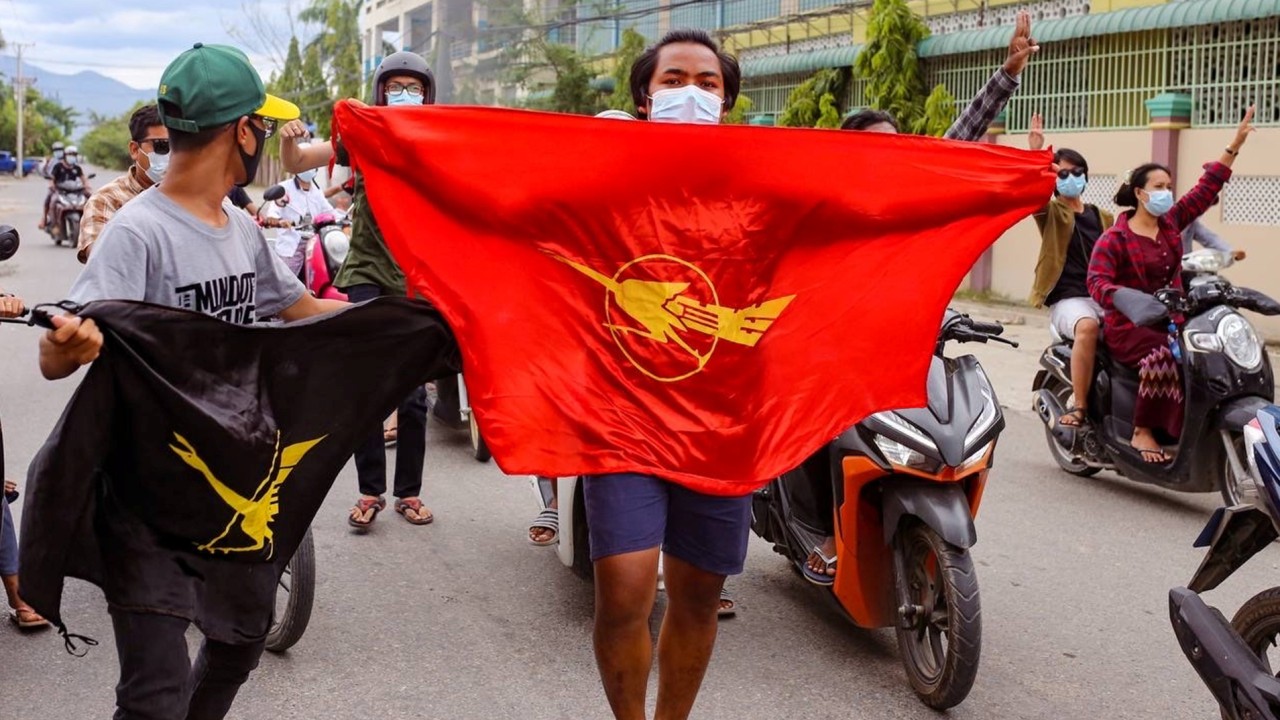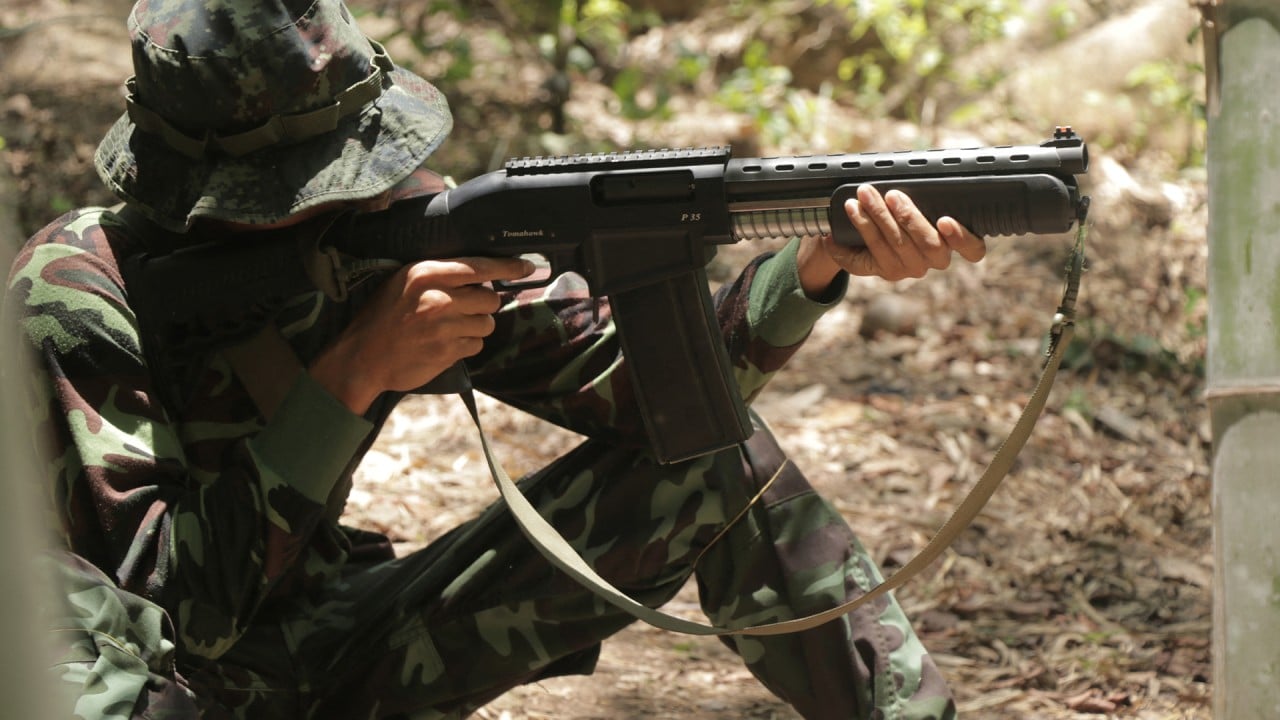
As Asean’s foot-dragging fuels anger in Myanmar, what next for ‘special envoy’ Erywan Yusof?
- It’s been more than six months since the coup in Myanmar, yet the Association of Southeast Asian Nations appears to have done little other than appoint Brunei’s Erywan Yusof as a ‘special envoy’
- A perception among Myanmar’s conflict-weary people that Asean has abandoned them is being made worse by suspicions the bloc is inching towards granting Min Aung Hlaing’s junta legitimacy
Then, a further three months elapsed before the bloc agreed on appointing Brunei’s senior diplomat Erywan Yusof as the special envoy to the violence-wracked nation.
Now, some three weeks have passed since that August 4 appointment, and the bloc has still offered little indication of what is to come.
“[Asean is] not as effective or as quick as we would have hoped for. But this is a difficult situation,” Balakrishnan told Reuters.
This question featured heavily in a Myanmar-focused panel discussion this week involving leading scholars and commentators.
In the Thursday panel organised by the Cambodian Institute for Cooperation and Peace, veteran Asean affairs commentator Kavi Chongkittavorn suggested cynics were failing to comprehend just how arduous it was for the bloc to find common ground.
“Everyone is in a difficult position...It [took] a long time before Asean could agree on the special envoy and I’m glad they took the time,” he said.
Chongkittavorn, a former special assistant to the Asean secretary general, suggested Erywan could visit Myanmar as early as this week.

When he does make the trip, the Bruneian will be fully empowered to negotiate with the military junta and start the consultation process that is at the heart of his role, the Thai commentator suggested.
The appointment of an Asean special envoy is part of a five-point consensus that Asean struck with junta leader Min Aung Hlaing in April, as part of efforts to de-escalate violence in the country after the ousting of the democratically elected National League for Democracy (NLD).
Asean has been repeatedly criticised for the length of time it took to pick Erywan and some quarters – especially rights groups – say there must be a global rethink about having the bloc serve as the main platform for the international community’s efforts to de-escalate the post-coup situation.
Asean looks to China for ‘follow-up’ on stalled Myanmar plan
Speaking in the same panel, Moe Thuzar of the Iseas-Yusof Ishak Institute think tank suggested the bloc’s overtures had thus far been largely futile.
The Singapore-based researcher acknowledged that Asean had repeatedly demanded the Myanmar military to immediately cease the use of lethal force against unarmed civilians.
But “nothing happened in Myanmar. The violence continued,” she said, bluntly. In fact, Thuzar said, state violence had escalated since the April 24 meeting in Jakarta which was attended by Min Aung Hlaing.
“In later months, when the number of killings were reduced to a certain extent, the number of arrests actually rose,” she said.

02:17
Myanmar military coup hampers fight against country’s biggest wave of Covid-19
Anti-Asean anger
A perception among Myanmar nationals that Asean is inching towards granting Min Aung Hlaing’s junta legitimacy is fuelling deep antipathy towards the bloc, said Thuzar, who is the co-coordinator of the Myanmar programme at the Singapore think tank.
In June, some protesters burned the Asean flag, showing anger towards the bloc in scenes that were “very shocking”, Thuzar said.
“The Myanmar people feel that, somehow, they have been abandoned to this horrible destiny,” she said. “I think future generations of young Myanmar people will grow up holding negative views of Asean.”
She also raised concerns that the work of the special envoy could be limited given the chairmanship of the bloc rotates annually. While Erywan’s Brunei is currently the chair, Cambodia will take over the chairmanship next year.
Explained: Is Asean’s Myanmar five-point consensus workable, and what is next?
“Getting up to speed to understand and to start communicating and talking to different stakeholders in Myanmar takes time and effort,” she said. “It also needs some kind of continuity.”
He rebuffed the notion that Asean had been sitting on its hands all this while, adding that he still had “faith in the special Asean envoy”.

02:30
Myanmar’s anti-coup protesters get combat training in jungle to fight military junta
Eyes on China
Also in focus is China’s position on the special envoy.
The Chinese Foreign Minister Wang Yi spoke with Erywan on August 18 at the Bruneian diplomat’s request, a Chinese foreign ministry statement said.
Wang Yi told Erywan to deal with “all parties in a rational and pragmatic manner” and to “stick to the direction of promoting peace through talks, [returning] state power to the people in an orderly manner and [restarting] the democratic process”.
The Chinese statement said Beijing fully supported the Asean “special envoy in performing his duties and is willing to continue to play a constructive role in promoting a political settlement of the Myanmar issue”.
US confident in Asean’s plan for post-coup Myanmar. Others, not so much
Social media posts seen by This Week in Asia earlier in August showed Myanmar nationals complaining of a lack of food and water while they were held in detention centres ahead of their deportation.
On Friday, the South China Morning Post reported thousands of Chinese nationals living in the area were being evacuated “as a last resort” amid continued local infections.
An official who spoke on condition of anonymity said the government had deported “a few thousand non-Chinese residents who had no proper documentation” back to their home countries – mainly Myanmar plus a few people from Laos.
Jason Tower of the United States Institute of Peace think tank said the threat of cross-border infections was among the reasons why the situation in Myanmar was critical to China.
Chinese authorities’ purported use of local business associations to distribute Covid-19 related aid to Myanmar nationals living in the border area was a welcome move.
“If China’s relationships are limited to the military junta, which lacks credibility and legitimacy
in the eyes of the people, it will struggle to reset or improve those people-to-people ties”, said Tower.


